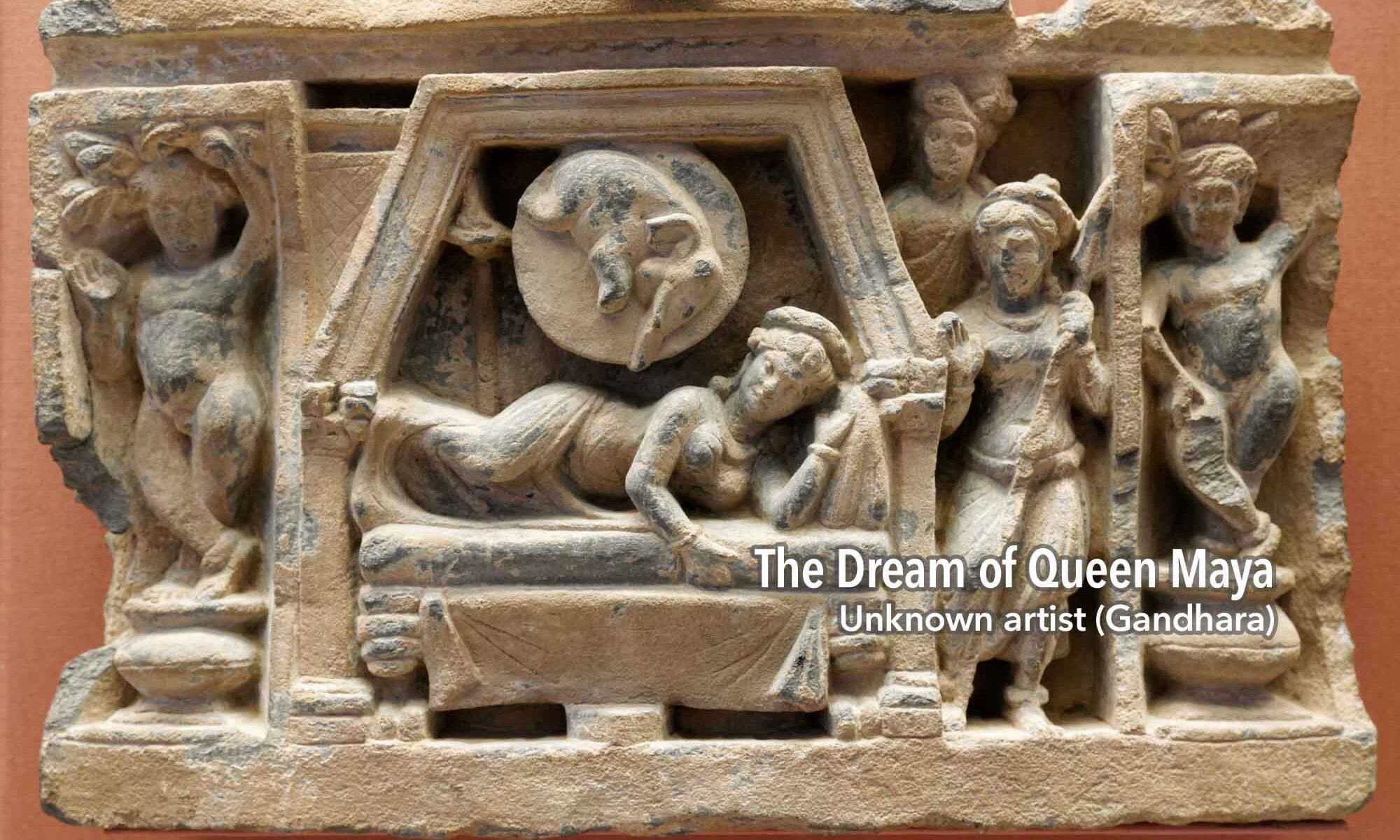Download pdf
A couple of years ago I was working my way through the major works of Calvin Hall, as part of my doctoral dissertation research. As I read Hall’s book The Meaning of Dreams (1966), I came across the following passage:
“Dreams contain few ideas of a political or economic nature. They have little or nothing to say about current events in the world of affairs….Presidential elections, declarations of war, the diplomatic struggles of great powers, major athletic contests, all of the happenings that appear in newspapers and become the major topics of conversation among people are pretty largely ignored in dreams.” (11)
For some reason this passage bothered me. Of course I understood Hall’s basic point, that we usually dream about personal matters like the health of our body and the relationships we have with family and friends. And I knew that other dream experts basically agreed with Hall; most psychologists, sleep laboratory researchers, and writers of popular books on dreams also regard dreams as speaking solely to the personal life concerns of the dreamer.
But still, I was bothered. Hall’s claim seemed too strong, too sweeping. The more I thought about it, the more examples I found that challenged Hall. Jung’s autobiography Memories, Dreams, Reflections (1965) presents a number of his dreams that spoke directly to the political situation of his world. Charlotte Beradt’s moving book The Third Reich of Dreams (1966) contains dozens of dreams of people living in 1933-1939 Germany–dreams that directly addressed the rising political power of Nazism.[i] Carl Schorske (1987) wrote a fascinating article on the striking political references in Freud’s “Count Thun” dream. Cross-cultural studies are filled with dreams that have direct relevance to the dreamer’s social and political world.[ii] And I myself have had many dreams in which politicians and political events play a prominent role.
As scattered as these references to politically-relevant dreams were, I felt there were enough of them to refute Hall’s claim, at least in its simplest form: politics do appear in people’s dreams, and people do dream about the political affairs of their communities.
But now I had two new questions to ask. First, what do such dreams mean? Are these dreams really about politics, or are they just using political imagery to express other kinds of meaning? And second, why are dream researchers like Hall so insistent that dreams are not relevant to political affairs, and relate only to personal, subjective realms of the dreamer’s life?
As the 1992 U.S. Presidential election approached, I realized I had a perfect opportunity to explore these questions in more detail. This election promised to be an exciting, passionately-waged contest. Fear about the economy, anger at incumbents, disgust with “politics as usual”, hopes for real change–no election campaign in years had stirred up such deep, powerful emotions in the American electorate. I decided that if people did not dream about politics during this Presidential election, then Hall was right and I would just drop the subject. But I thought that if people did dream about the election, I might be able to get a better understanding of 1) what those dreams meant and 2) why the field of dream studies has such difficulties in recognizing the political relevance of our dreams.
In the weeks leading up to the 1992 U.S. Presidential election I conducted a small study on how people’s dreams were responding to the campaign. I asked twelve people to keep detailed dream diaries from October 25 to November 8, the two weeks straddling the election. These people did not know what my study was about. I also asked a second group of about 40 people to tell me if they had any dreams relating to the Presidential campaign. The members of these two groups were quite varied in terms of age, education, occupation, geographical residence, and political outlook[iii].
My basic finding was that many people dreamed about the Presidential election. Not everyone in my study had dreams that referred to the candidates or the election campaign, but many people did have such dreams. Among my “blind” subjects, six of the twelve people (50%) had at least one dream relating to the election. Of the 113 total dreams reported by the twelve subjects, ten dreams related to the election, or about 9% of the total dreams. I want to emphasize that my study was not based on an absolutely random sample. If my findings have any value, it is not for what they prove, but rather for what they suggest about the relationship between dreams and politics.
The Debates
A number of dreams reacted to the four Presidential and Vice Presidential debates that were held prior to the election. The reactions were not favorable. Hank, a government employee in his late 30’s, dreamed this right after the first Presidential debate:
“I am watching something like a presidential debate on TV…Bush is attacking Clinton because of a mistake that Clinton made in managing his financial accounts. Clinton apparently let one of his accounts get overdrawn, and has lost the account as a result. Bush is saying that this is bad…A woman reporter comments that Clinton’s position in the campaign was so strong that he is still a little bit ahead of the president, even after his mistake. She says to Bush that, if it weren’t for this mistake, Clinton would have been able to “wipe your wild side for being so soft”. Bush is enraged at this comment. He loses control of his emotions. He leaves his podium, goes over to the reporter and physically attacks her. I can’t believe this is happening. I tell my father that “George Bush just lost it.” Some people are trying to subdue the president and get him back to his podium. The woman reporter is very shaken, and leaves the stage. Then there is a view of the room from straight overhead. As some people are leaving, some other people throw food at them. The whole situation degenerates into a fight, with people throwing things at each other and running around the room.”
Hank proudly noted that this dream came before the rambunctious Vice Presidential debate, which many pundits referred to as a “food fight”. Maggie, an artist from Chicago in her early thirties, also dreamed of the political campaign as a kind of food fight:
“I am running down a spiral staircase. The staircase is in the middle of a duplex office where there is a food fight/political fight going on. I don’t want any part of it.”
This same distaste for the childish behavior of the candidates prompted Carla, a retired copywriter from Texas, to dream this the night after the Vice-Presidential debate:
“I was watching a 2-year old, blond baby boy. I latched the screen doors, but he hit the screen door and the hook slipped free and he ran out. I ran after him, calling, “Danny Quail, come back here. How did you get loose?” When I brought the child back I looked at the latch and saw the problem. The part that held the hook wasn’t made right. It was too thick.”
Carla says she knew in the dream that she was misspelling Vice President Quayle’s last name, and thinks it may be a reference to his infamous misspelling of “potato(e)”.
Ross Perot
The candidate who appeared most often in people’s dreams was Ross Perot. Perot’s strong personality, controversial ideas, and roller-coaster candidacy made him the object of huge voter interest. Thus, it is not surprising that people would dream about him. What is surprising is that the people in my study tended to dream about him in very anxious, very skeptical terms. Julie, a community activist in her 40’s from California, reported that
“On Oct. 22 I dreamt of Ross Perot all night! I was with him sometimes. I was nearby him at other times. And I watched his face on TV also during my dream. I woke up with a strong feeling of irritation.”
Julie’s dream seems to reflect her reaction to Perot’s late reentry into the race, and to the heavy media blitz that accompanied it. For those last couple weeks of the campaign, Perot literally was everywhere.
Most of the Perot dreams referred to his prickly personality. Maggie had a long dream of hurrying around New York because she was late for a breakfast appointment. Towards the end she dreams
“I am in a big hurry but try to stop and buy olive oil and hot peppers. I stop in a very old country store/warehouse type place. They are very friendly and very, very slow. Ross Perot is the shop keeper and I know if I try to rush him he’ll get angry and won’t serve me and all the time I have already waited for him will be wasted. I think I still leave without my goods because I cannot wait any longer.”
Tim, a 30-year old writer in Los Angeles, also dreamed of being intimidated and somewhat frightened by Perot:
“Perot is in the living room of my parents’ old house…talking to about thirty people. He’s answering some question with a parable about a horse-like Australian rodent. He’s describing the animal in detail. I grow impatient and interrupt him, “Fine, the thing is horse-like, Australian, and a rodent, so what? What does it do?” The crowd doesn’t share my impatience and I’m embarrassed.”
The following Perot dream was told to me by Jean, a young woman who works at the Marshall Fields department store in Chicago:
“For some reason I was going to work at a state mental hospital which was being closed down. People were carrying files out, wheeling patients away. It was a big, dingy building. I and some others were waiting for the new boss to come. Much to our surprise, Ross Perot arrived. He stated that he would be running the hospital and we would work for him. He was dressed casually in a tacky purple and white outfit. He looked ridiculous. The rest of the staff gathered, and instead of taking the elevator we all walked up the stairs to prove our dedication and endurance. The climb was longer than expected and we were all complaining and some people were sick. Ross didn’t know how much farther we had to go, anymore than we did. One man had a fall and broke his neck… Although there were nurses there, none would help him but me. Ross didn’t know what to do.”
Jean said she feels the dream is a commentary on the “lunacy” of the country, and the “double lunacy” of thinking a “crazy man could be the leader of a mental hospital”.
George Bush
President Bush tried to present himself in the 1992 campaign as a champion of “family values” and of experienced leadership. The dreams I gathered suggest that he succeeded in this. Jean, who describes herself as a “die-hard Republican”, had the following dream:
“Bush and Quayle are in town, to give a speech, and I’m asked to set things up and cook dinner for them. It’s fine, I’m proud to do it all. I cook dinner for 12,000 people, set up the speaker’s hall, and work everything out with the secret service agents. The dinner goes off, it’s finished, and they say goodbye to me. I feel very good about it all.”
In this dream Jean plays the traditional role of a hostess: taking care of her guests, cooking their dinner, helping them to be safe and comfortable. Although the work seems rather demanding (where do you find place settings for 12,000 people?), Jean gets great satisfaction out of it. Her dream suggests that traditional “family values” provide her with a sense of security and fulfillment.
Of the three candidates, President Bush appeared least often in the dreams of people in my study. This supports the conclusion of most political analysts that Bush lost the election because he was “out of touch” with the real-life concerns of voters.

